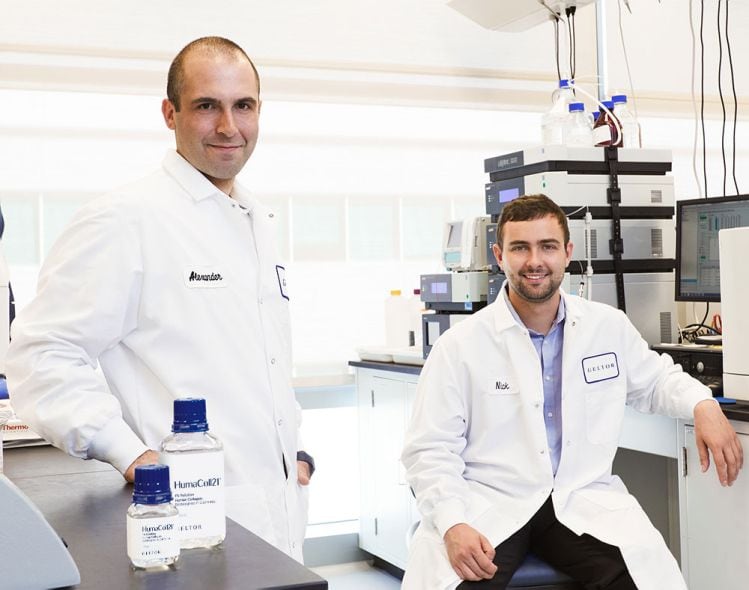The Netherlands-based dairy cooperative has a long history of supplying ingredients into the food and beverage and dietary supplement industries. But according to Rudy Dieperink, president and CEO of North American operations, the company was turning many faces to the market, something which sometimes confused and confounded customers. And it was stepping on its own toes far too often.
Straightening out the loops in the chain
The company was highly siloed, Dieperink told NutraIngredients-USA during an interview at the recent SupplySide West trade show. This resulted in multiple approaches to the same potential customers from experts from different parts of the business who were not working as effectively with each other as they might.
“Our customers who worked in different areas could see the different opportunities from our products and we couldn’t see it for ourselves,” he said.
Dieperink said the company has now coalesced into four operational areas with divisions focused on adult nutrition, early life nutrition, food and beverage and animal nutrition. It’s the final phase of a process that began with a merger of dairy cooperatives in 2009 that formed the Friesland Campina that the market knows today.
The company is owned by about 19,000 farmers whose farms are mostly on the small side averaging about 150 cows apiece, Dieperink said. The company is about 75% involved in consumer dairy products and about 25% involved in the supply of ingredients, he said.
“We think this new structure can help us to listen much more closely to what our customers want and to improve the clarity of communication with the marketplace,” Dieperink said.
New clear whey protein
Dieperink said the company’s new line of clear whey protein ingredients is an example of the company’s new way of working. It’s an ingredient that was developed for a specific use that has transitioned into new fields. In the past it might have taken persistent agitation from a customer who wanted to try the ingredient for new applications to make this sort of thing happen.
“Our new Nutri Whey Isolate is a very clear whey protein. It was originally aimed at patients who have difficulty swallowing,” Dieperink said.
“But now we have moved it into sports nutrition. So it is an example of something that started out as a medical food that was moved into a new application,” he said.
The new ingredient has a fertile potential market, Dieperink said. FrieslandCampina’s research shows the global healthy snack market will grow to $33 billion by 2025. In North American and Europe, products with high and/or added protein claims grew by 87% in the 2015 to 2018 time frame. And 25% of beverages across several categories contained added protein.
The new whey protein isolate is highly clear and suitable for acidic protein beverages. Dieperink said a differentiator is the type of cheese from which the whey is derived, which contributes to the clarity, clean mouthfeel and neutral taste of the resulting isolate.
“These products are highly capital intensive. It takes a lot of money to build these kind of factories. We used our proprietary filtration technology to make a whey protein isolate that is very low in fat so that it can remain clear in solution,” he said.
FrieslandCampina expert panel
Another example of FrieslandCampina’s new operational structure is the formation of its first External Expert Panel connected to the FrieslandCampina Institute. The group held its first meeting in June of this year. The panel consists of Prof. Wim Verbeke PhD of Ghent University, Emeritus Prof Wim Saris, of Maastricht University, Prof Ma Guansheng PhD of Beijing University and Prof Folake Samuel, PhD of the University of Ibadan in Nigeria.
The company said the insights gathered fromthe panel’s first meeting will be incorporated into its strategic plans for the 2020-2025 period.




